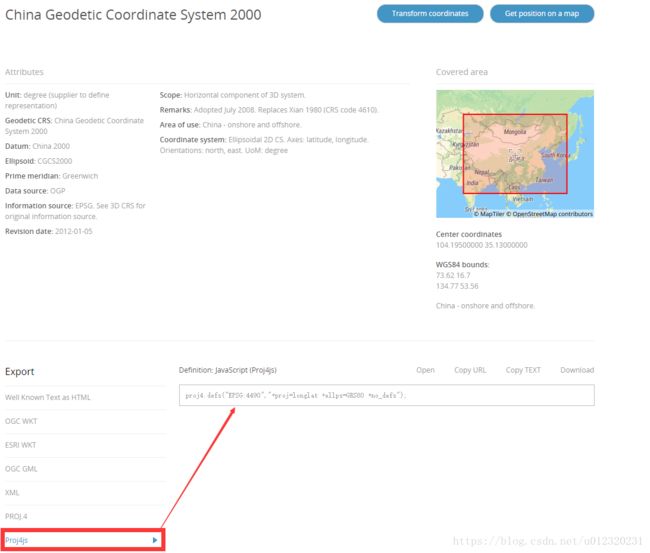leaflet入门——地图加载(以arcgis服务为例)
最近由于项目需求,于是开始了leaflet的学习,leaflet在加载地图上具有自己独特的优势,能够在各种浏览器(包括手机)下面很好的运行,并且具有很多的插件供我们选择。在该教程中, 我们使用了除leaflet之外的额外插件有 esri-leaflet.js(https://esri.github.io/esri-leaflet/)、L.Control.MousePosition.js(https://github.com/ardhi/Leaflet.MousePosition)、【proj4.js与proj4leaflet.js】(https://github.com/kartena/Proj4Leaflet)。
1. 动态图层加载
在加载还图层的时候注意,此时的URL只能是动态图层服务地址,不能具体到某个图层。加载代码如下:
let map = L.map('divclass').setView([28.751407,118.628740],12);
let dynamicLayer = L.esri.dynamicMapLayer({
url:'http://localhost:6080/arcgis/rest/services/js/jsdxt/MapServer/',
opacity: 0.8,
f:'json'
});
map.addLayer(dynamicLayer);2. 要素图层加载
let map = L.map('divclass').setView([28.751407,118.628740],12);
let featureLayer = L.esri.featureLayer({
url:'http://localhost:6080/arcgis/rest/services/js/tx/MapServer/1/'
});
map.addLayer(featureLayer);3. 切片图层的加载
our map service must be published using the Web Mercator Auxiliary Sphere tiling scheme (WKID 102100/3857) and the default scale options used by Google Maps, Bing Maps and .Esri Leaflet will not support any other spatial reference for tile layers.
这个摘自官方的一段(https://esri.github.io/esri-leaflet/api-reference/layers/tiled-map-layer.html),大概的意思是当我们使用L.esri.tiledMapLayer的时候,支持WKID为102100/3857的投影地图,既是我们平常使用的web墨卡托投影的地图,其余的地图投影不支持,此时我们就需要用到proj4.js与proj4leaflet.js这两个库来进行自定义投影,具体的投影转换已经各种参数的定义,我们可以通过(https://epsg.io/)这个网站来获取,比如我们搜索4490,如下图,箭头所指的就是我们使用Proj4来进行投影时的定义参数:
当我们获取到了投影参数之后,我们就可以使用L.Proj.CRS来定义一个投影了,具体代码如下:
let tileMapUrl ="http://localhost:6082/arcgis/rest/services/jhzhps/JHJT/MapServer";
let CRS_4490 = new L.Proj.CRS("EPSG:4490", "+proj=longlat +ellps=GRS80 +no_defs", {
resolutions: [
1.40625,
0.703125,
0.3515625,
0.17578125,
0.087890625,
0.0439453125,
0.02197265625,
0.010986328125,
0.0054931640625,
0.00274658203125,
0.001373291015625,
6.866455078125E-4,
3.4332275390625E-4,
1.71661376953125E-4,
8.58306884765625E-5,
4.291534423828125E-5,
2.1457672119140625E-5,
1.0728836059570312E-5,
5.364418029785156E-6,
2.682209064925356E-6,
1.3411045324626732E-6
],
origin: [-179.9999, 90.00016],
bounds: L.bounds([117.75370429660006, 26.99449191557761, ], [123.63262097540007, 32.2668788575695])
//这里可以有origin、transformation、scales、resulutions、bounds几个参数提供
//选择,其中scales与resolutions不能同时配置
});
let map = L.map('divclass',{
crs:CRS_4490
}).setView([29.108339,119.647787],13);
let tileMapLayer = L.esri.tiledMapLayer({
url:tileMapUrl
});
//L.esri.basemapLayer('Gray').addTo(map);
map.addLayer(tileMapLayer);
L.control.mousePosition({
'position': 'bottomright'
}).addTo(map);此时,我们已经完成了对切片,要素,动态地图的加载,此代码仅供初学者学习借鉴,整个文件的代码如下图所示:
leaflet实例
